Basic Arithmetic Normal Addition & Subtraction Worksheets for Ages 4-5
6 filtered results
-
From - To
Enhancing young minds with our "Basic Arithmetic Normal Addition & Subtraction Worksheets for Ages 4-5" is fun and educational. These thoughtfully crafted worksheets help children grasp fundamental math concepts through engaging activities. Designed for preschoolers, the exercises focus on basic addition and subtraction to build strong mathematical foundations. Each printable worksheet is filled with colorful illustrations to capture attention and provide a delightful learning experience. Ideal for early learners, these resources promote problem-solving skills and numerical confidence. Download now and watch your child enjoy the magic of numbers. Perfect for both parents and teachers seeking to inspire a love for math.
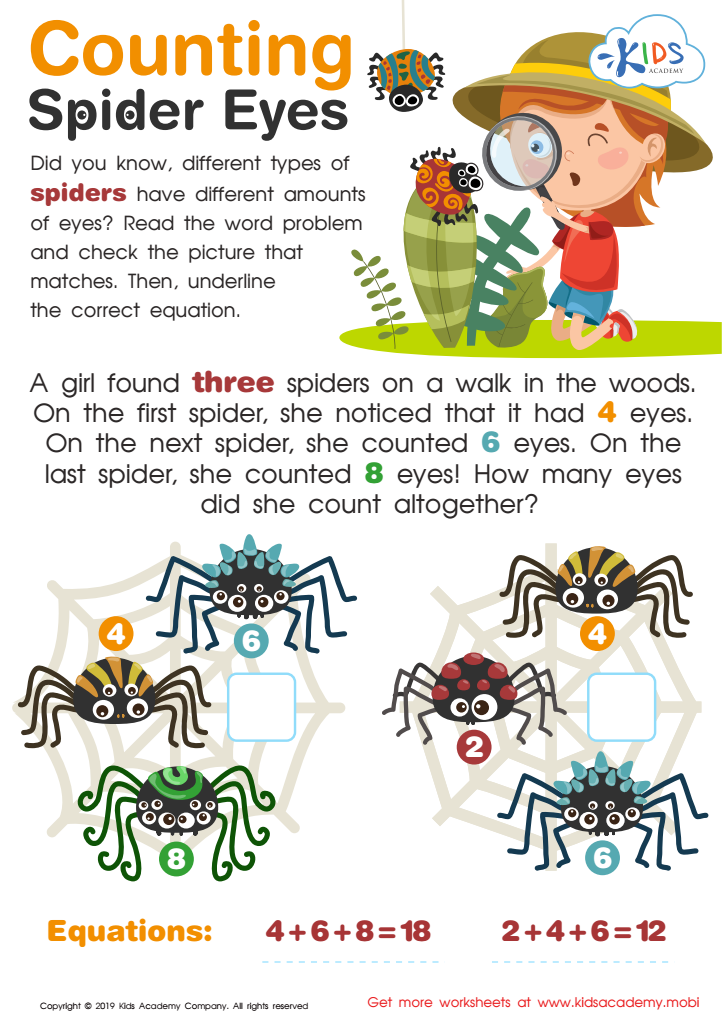

Counting Spider Eyes Worksheet
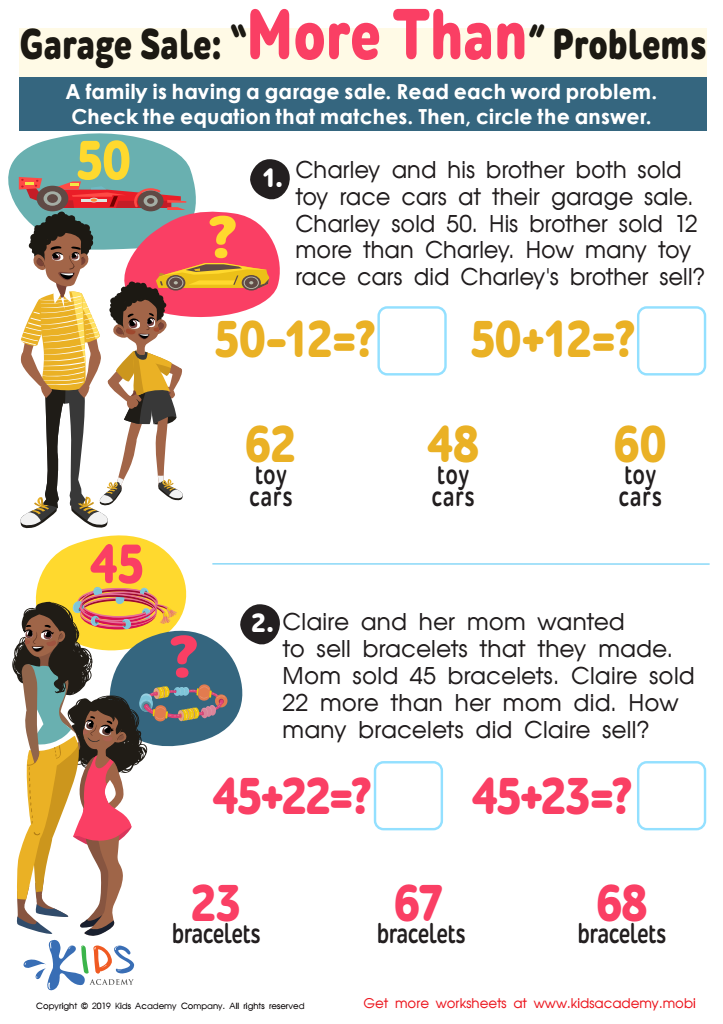

Garage Sale - More yhan Worksheet
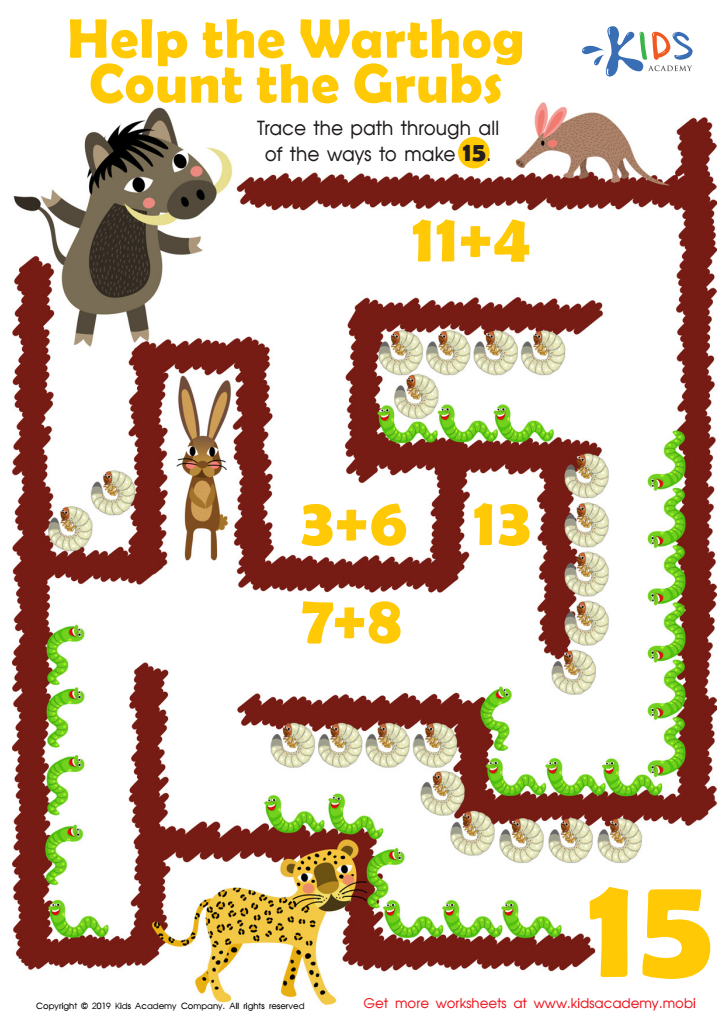

Help the Warthog Count the Grubs Worksheet
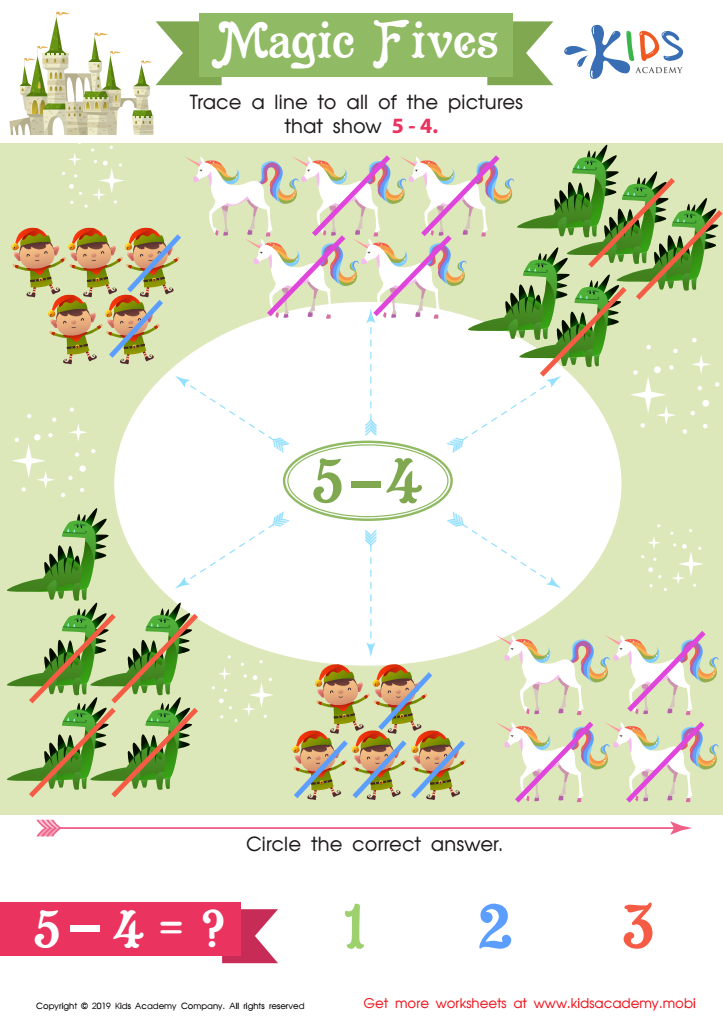

Magic Fives Worksheet
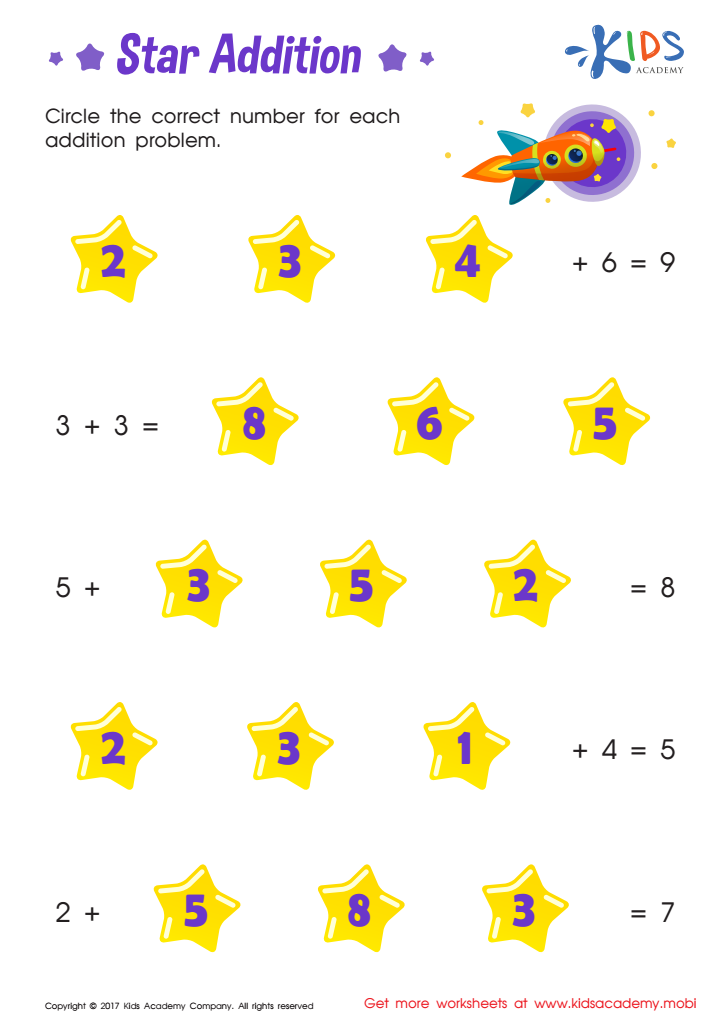

Star Addition Printable
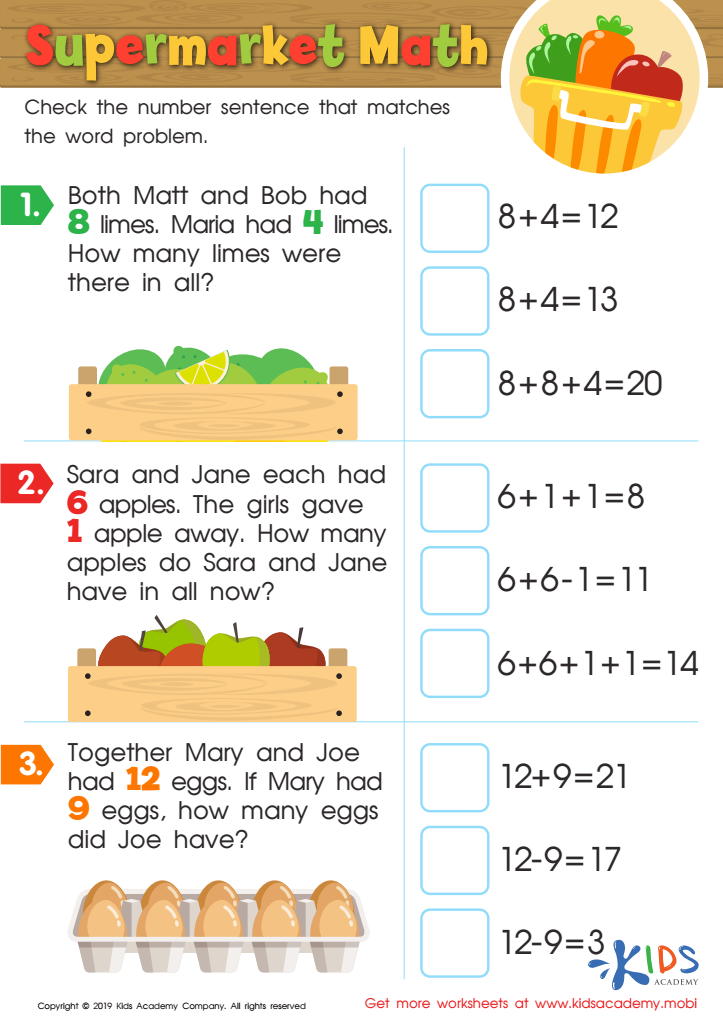

Supermarket Math Worksheet
Basic arithmetic, specifically normal addition and subtraction, lays the cornerstone for a child’s cognitive development, particularly for ages 4-5. During these formative years, young children are in the critical 'preoperational stage' as defined by Piaget, where they begin to develop a sense for numbers and mathematical relationships. Familiarity with basic arithmetic fosters problem-solving skills, enhances understanding of mathematical concepts, and supports overall academic confidence.
By incorporating addition and subtraction exercises, children develop a fundamental numeric sense that is crucial for their later school years. These early math skills promote logical thinking and reasoning, establishing a structured approach to both everyday problems and structured learning environments. Educators and parents who prioritize arithmetic readiness help prevent future mathematical struggles, creating a seamless transition to more complex concepts.
Furthermore, success in these early skills builds self-esteem and positive attitudes toward learning. Integrating numbers into daily activities, such as counting toys or baking with measured ingredients, transforms abstract concepts into relatable, real-world situations. Thus, fostering an early appreciation and understanding of math supports a child’s overall educational journey and equips them with essential life skills. Focusing on these basics at the appropriate age ensures that foundational gaps don't hinder future learning.
 Assign to My Students
Assign to My Students

















